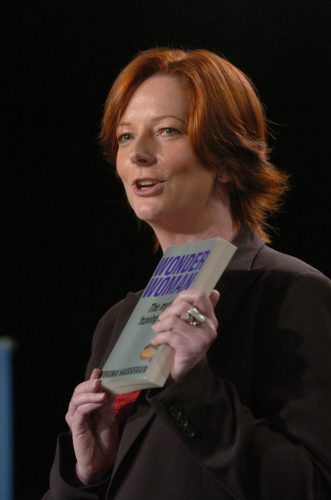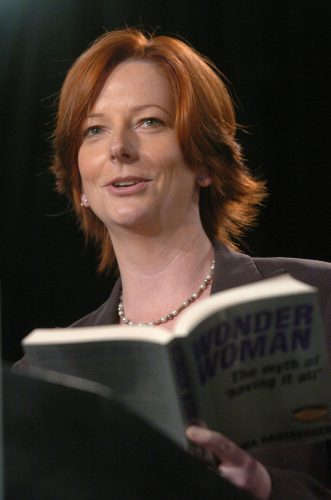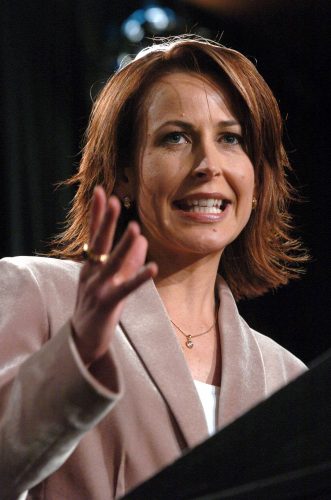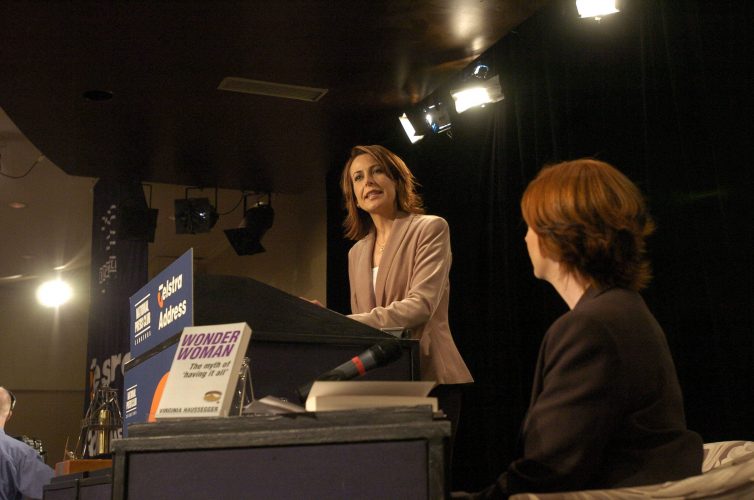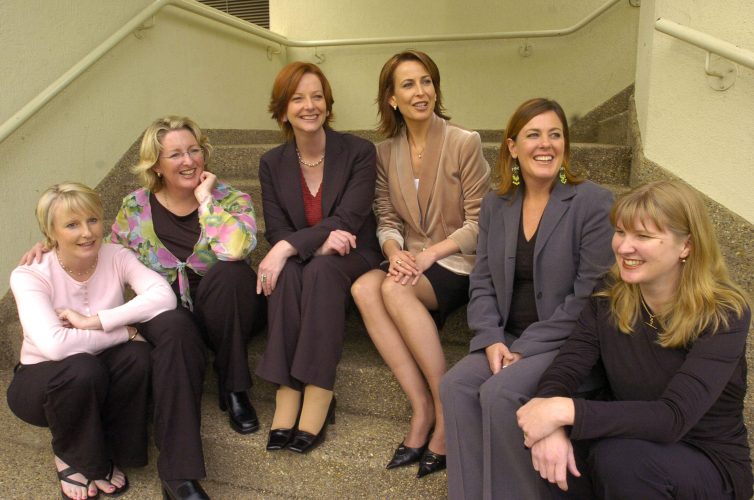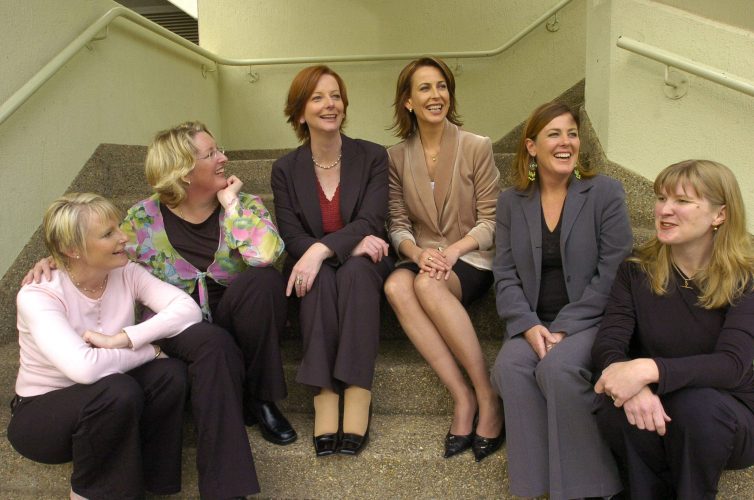Sometimes a political back-flip can be tossed off with such expert nonchalance, it passes unnoticed.
Pru Goward did it on Monday morning. I was washing breakfast dishes at the time and didn’t stop to rip off the rubber gloves. I had to dash into the lounge room, to stare at her on the television screen, just to see what her face did as she said it. There wasn’t even a twitch.
Goward was speaking on Sky’s Agenda program about election issues concerning women. The discussion turned to a paid maternity leave scheme, and this is what she said: ”Well I think we’ve basically got there. I think that there are now bigger issues than that.”
Australia is one of only two OECD countries that still doesn’t have a paid maternity leave scheme. Across the globe countries like Peru, Angola, Cambodia, Canada, Mozambique and Britain see fit to pay women workers while they care for their newborn. Some such as China, Germany, Norway, Switzerland and The Netherlands pay the leave at 100per cent of a woman’s wage. In France full payment continues for up to six months.
But in Australia you’re on your own. Unless you work for the public service, or an enlightened employer who values your talents and wants to retain your skills.
Australia now holds dubious claim to being one of the rare international standouts for refusing to implement a national paid maternity scheme.
It’s been a political battle since the ’70s that, for a moment, it looked like we might win. Five years ago a loud crusader for paid maternity leave appeared centre-stage looking like she might just finally cut though. In what was later described as ”one of the standout political performances of 2002”, the then Federal Sex Discrimination Commissioner, Pru Goward, stunned her critics and her colleagues with the most impressive and comprehensive argument for paid maternity leave Australia had ever seen. She proposed a compulsory 14 weeks paid leave for all working women, fully costed at $213 million.
Goward hit the airwaves to flog the plan in an unprecedented media blitz. Backed by an excellent research report that the Government couldn’t really fault, and with the ability to garner public support, Goward drove the issue hard. But in the end, despite having the ear of the conservative Prime Minister, she got rolled.
Ironically though, the public campaign helped raise her profile and consolidate her credentials, positioning Goward well for her current role as NSW MP and Liberal Party celebrity.
Once a forceful advocate for paid maternity leave, it appears Goward is now ”over it”. And it would seem – other than Democrats Senator Natasha Stott Despoja – the rest of Australia is too. While the outgoing Stott Despoja introduced legislation for a paid maternity scheme in September, none of the main political parties, and certainly no political heavyweights, bother talking about maternity leave anymore.
Goward told her TV audience that she agrees with the Prime Minster’s view – that the $5000 baby bonus, in conjunction with a statutory one year’s unpaid leave, is ”as far as the UN is concerned” a paid maternity leave scheme.
While the baby bonus might be great for buying a pram, a cot, a heater for the family room, or funding the gaping ”obstetrics gap”, it does nothing to stop new mothers returning to work well before they should. Nor, as Stott Despoja has pointed out, does it help a woman retain her worker’s entitlements, such as superannuation payments, while she is on leave.
When asked about paid maternity leave during a televised debate at the National Press Club two weeks ago, neither the Government’s Sharman Stone nor the Opposition’s Tanya Plibersek had anything interesting to say. Both danced around the old bogie of not wanting to spook business, with Stone insisting ”barriers to [the] employment of women” will go up if maternity payment is made mandatory. This, of course, ignores that most of Australia’s trading partners currently have government-funded schemes.
But Stone did raise a few eyebrows and even caused a few gasps when she made reference to another hot issue for Australian women. When touting the Government’s achievements, Stone announced that Australia was ”now a leader in closing the gender wage gap”.
It’s difficult to understand how the Government can continue to make such a claim, when scrutiny of its own data would suggest otherwise. Employment and Workplace Relations Minister Joe Hockey wrongly claimed in May that ”female earnings have outstripped male earnings over the past year”. He also said women were earning 89c to the male dollar. The ABS (the source of the Minister’s data) put the figure closer to 81c.
Research commissioned by the National Foundation for Australian Women has since put the gender pay gap at 84c. For Stone to suggest Australia is somehow leading the world in this area is astounding. Yesterday the World Economic Forum released its Global Gender Gap Report 2007. In the category for ”wage equality for similar work (survey)” Australia ranks an unimpressive 51 out of 128 nations.
Leading the world? More like leading women up the garden path.
